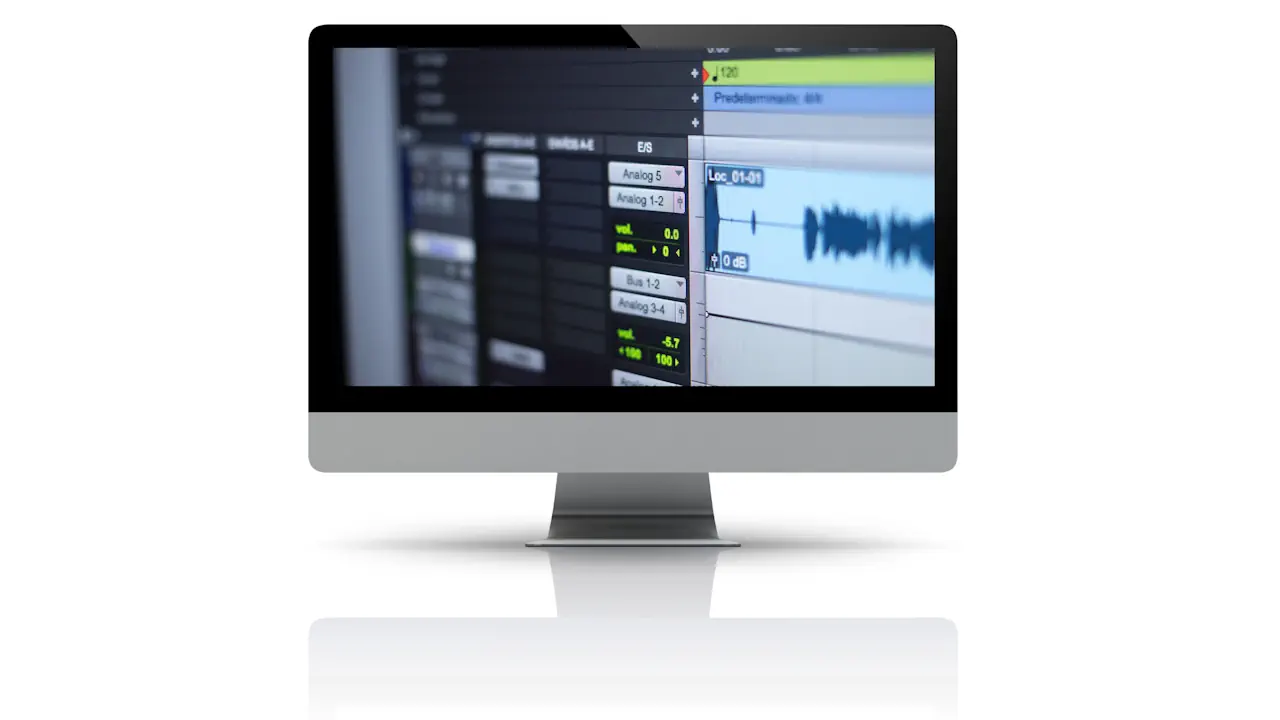
Have you ever felt that your musical ideas could improve with the right tools? Or, are you a beginner looking to start your musical journey?
Discover the world where technology and creativity merge in a computer designed for music producers.
Imagine having access to lightning-fast processing and vast storage for your sample libraries. Seamless integration with top music production software. An all-in-one powerhouse machine.
Discover how the Music Production Computer can change your creative process.
Apple Macs for Music Production
“Please note that this article contains affiliate links, meaning I may earn a commission from purchases. Read my full disclosure.” “As an Amazon Associate, I earn from qualifying purchases. “
Best Mac desktops
Producers have long favored Apple Macs for their reliability and performance. Several particularly well-suited Mac desktop options are available.
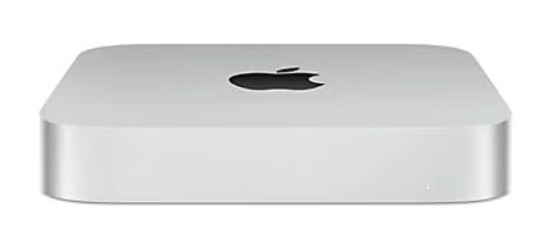
Mac Mini
If you are looking for a more compact option, the Mac Mini is a great choice.
Despite its small size, the Mac Mini packs a punch with its fast processor and ample storage.
The Mac Mini is ideal for home studio setups or producers requiring a portable solution.
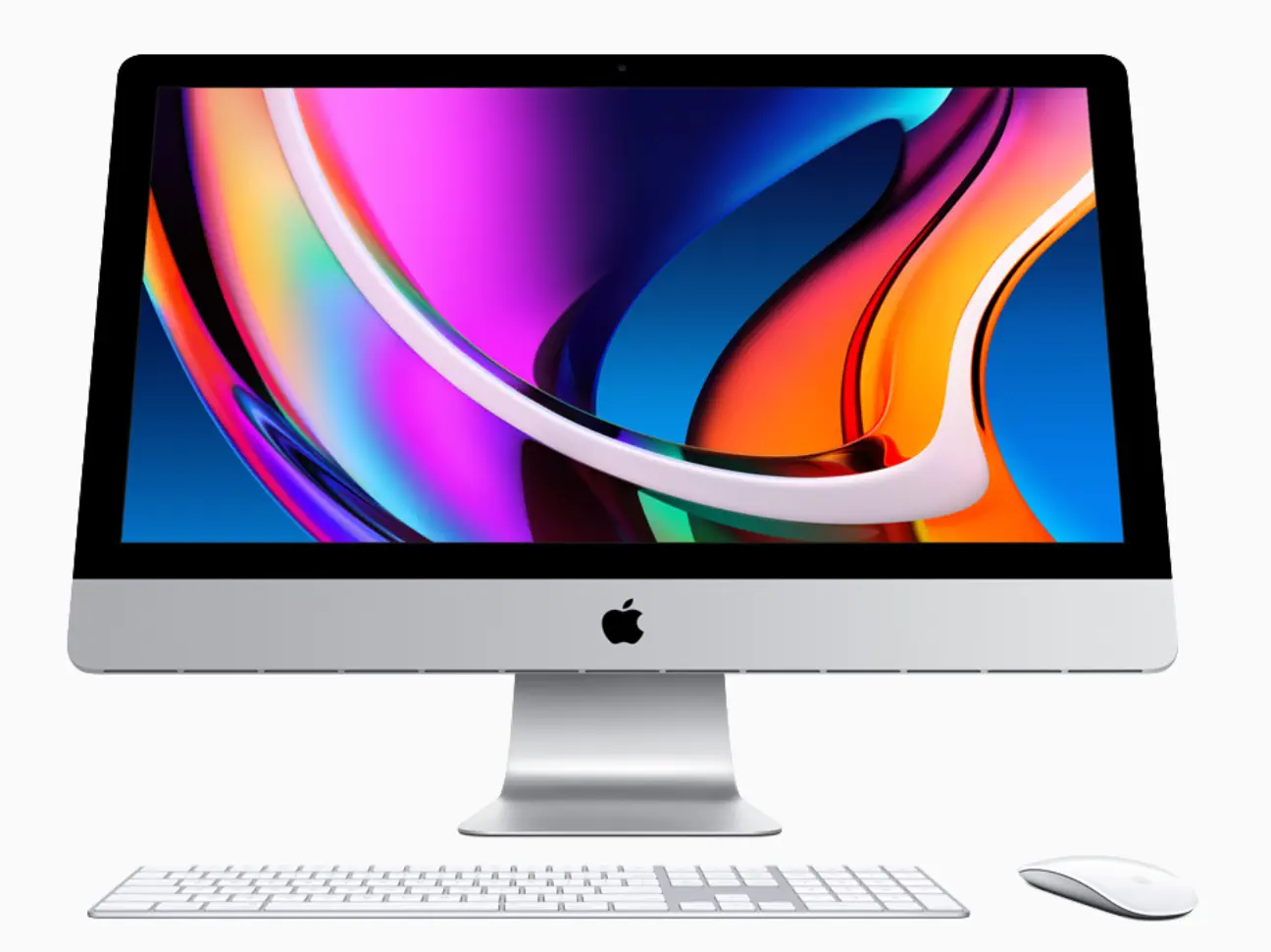
iMac
The iMac is a popular choice among producers.
The iMac is a sleek and powerful computer with a vibrant display. It’s great for music production.
The iMac is dependable and performs well whether you use it in a music studio or at home.
Best Mac laptops
If you prefer portability and convenience, Apple offers a range of options suitable for music production.
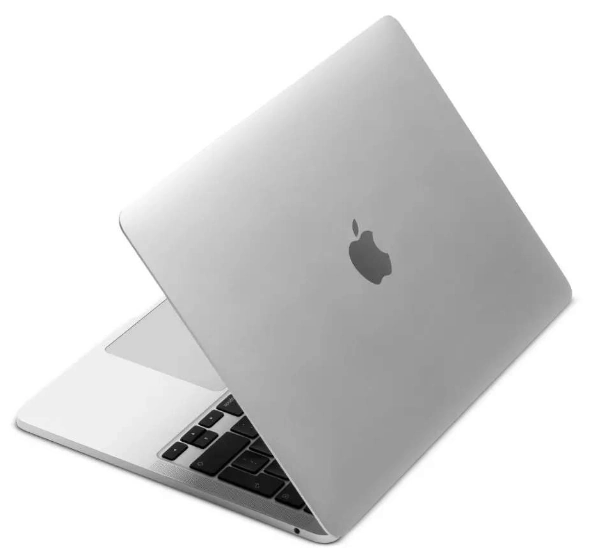
MacBook Pro
The MacBook Pro is Apple’s flagship laptop and is used by professional producers.
The Mac Pro is ideal for making Music and features a powerful processor, ample RAM, and a high-resolution display.
It is a favorite among producers who value performance and portability.
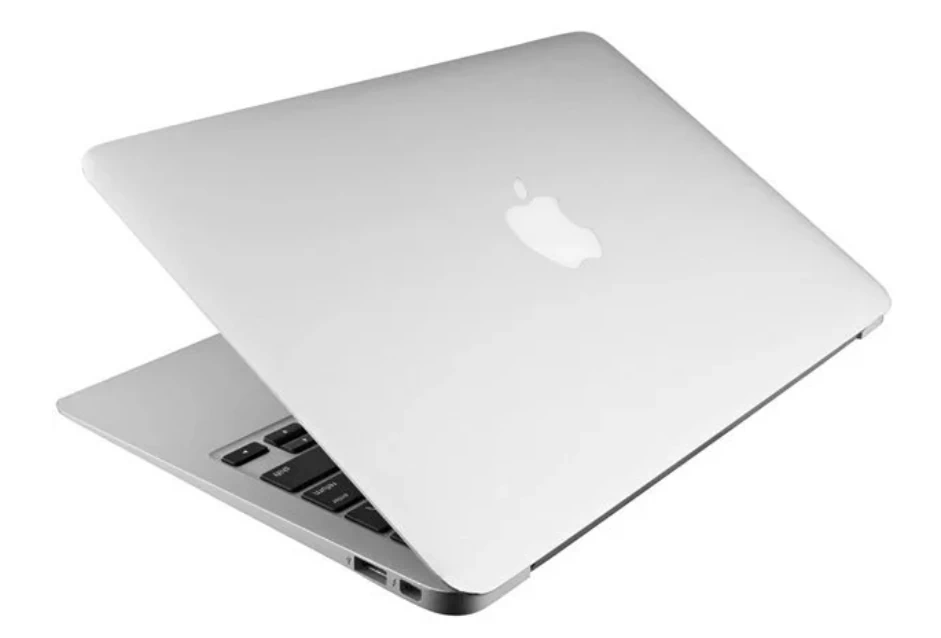
MacBook Air
The MacBook Air is an excellent choice if you’re looking for a laptop that is easy to carry and affordable.
It is lightweight and looks nice.
The MacBook Air is slim, but it still has enough power and storage for making Music while traveling.
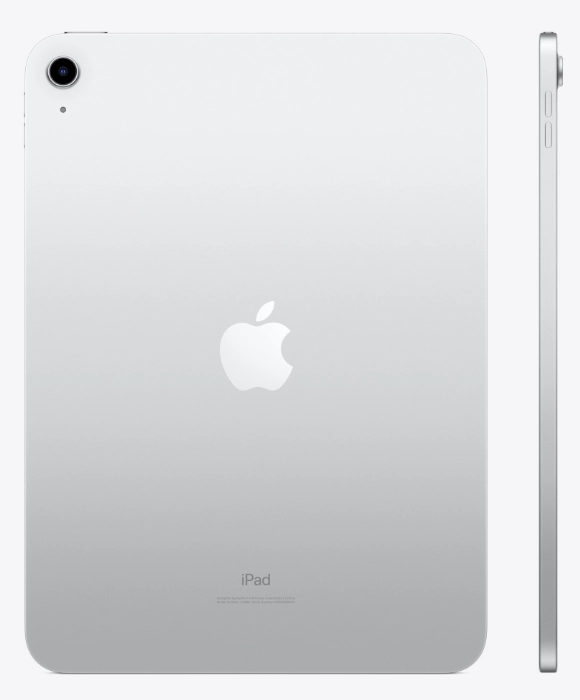
iPad for Music Production
The iPad is a viable option for producers who prefer a touch-based interface.
The iPad features a powerful processor and numerous music production apps, making it a unique and user-friendly device.
While it may not have the same processing power as a desktop or laptop, the iPad is a versatile tool for music on the go.
Windows PCs for Music Production
Best desktop PC
Several options offer excellent performance and reliability if you prefer a Windows-based music production PC.
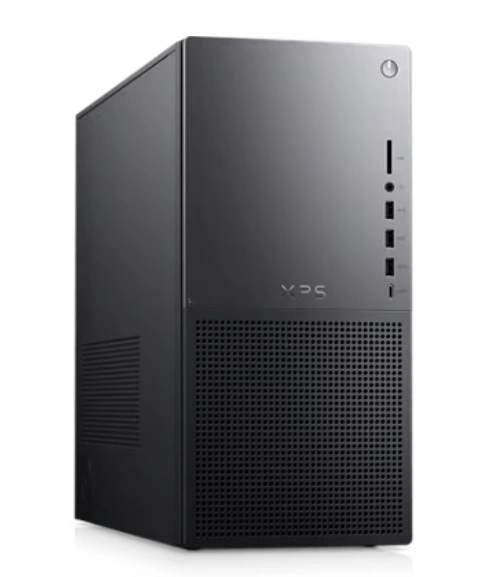
Dell XPS Desktop
The Dell XPS Desktop is a popular choice among producers.
It offers powerful specifications, a sleek design, and ample storage options.
The Dell XPS Desktop is a versatile and reliable option for production.
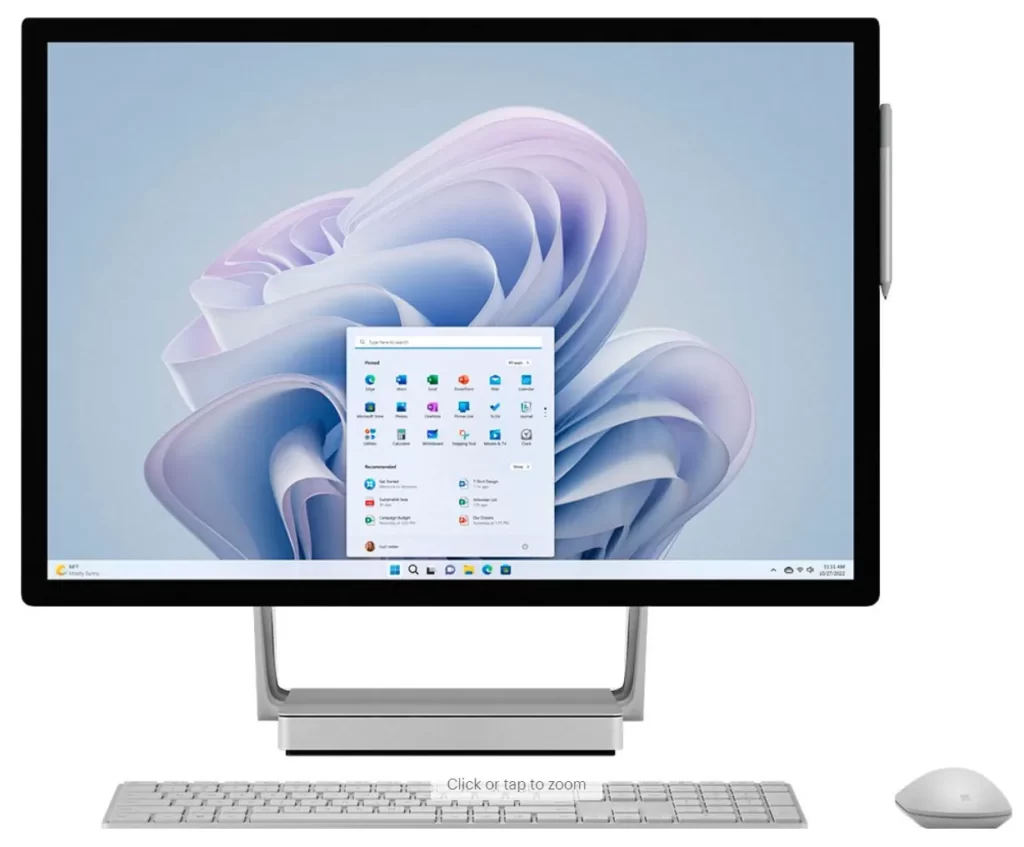
Microsoft Surface Studio 2
The Microsoft Surface Studio is a unique all-in-one solution for music production PCs.
The Surface Studio features a large touchscreen and robust performance. This makes it great for creativity.
Custom Build PCs
Many producers prefer to build custom PCs tailored to their specific production needs.
Creating a custom PC allows you to choose the exact specifications you require, ensuring optimal performance and compatibility with your existing setup.
Best PC laptops
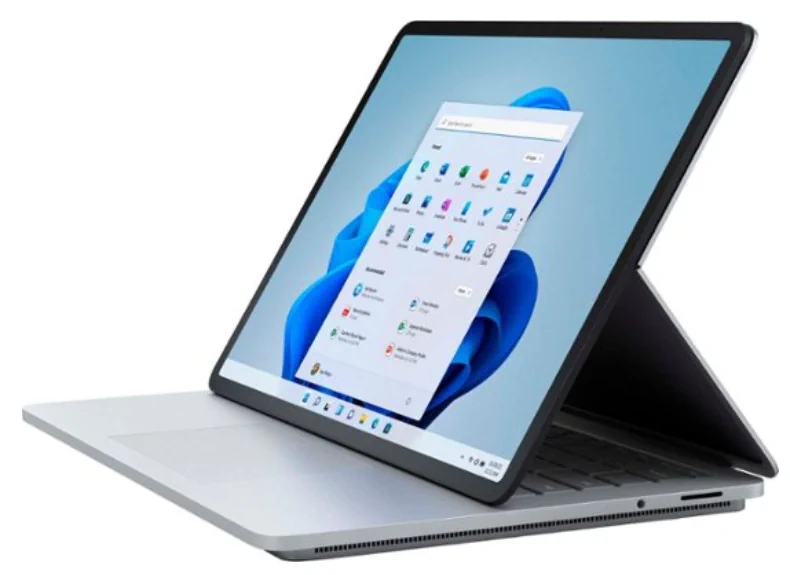
Microsoft Surface Laptop Studio
The Microsoft Surface Laptop Studio is versatile with a unique convertible design.
The option to make Music go is excellent.
It features a powerful Intel processor, ample RAM, and a high-resolution display.
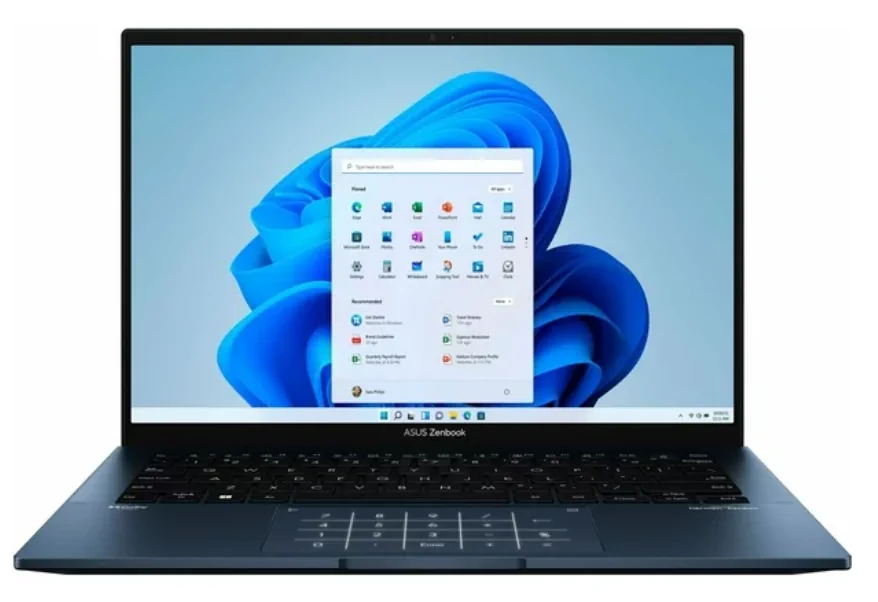
ASUS ZenBook
The ASUS ZenBook series offers a range of laptops well-suited for production.
The ZenBook performs well and is dependable due to its solid features and stylish design.
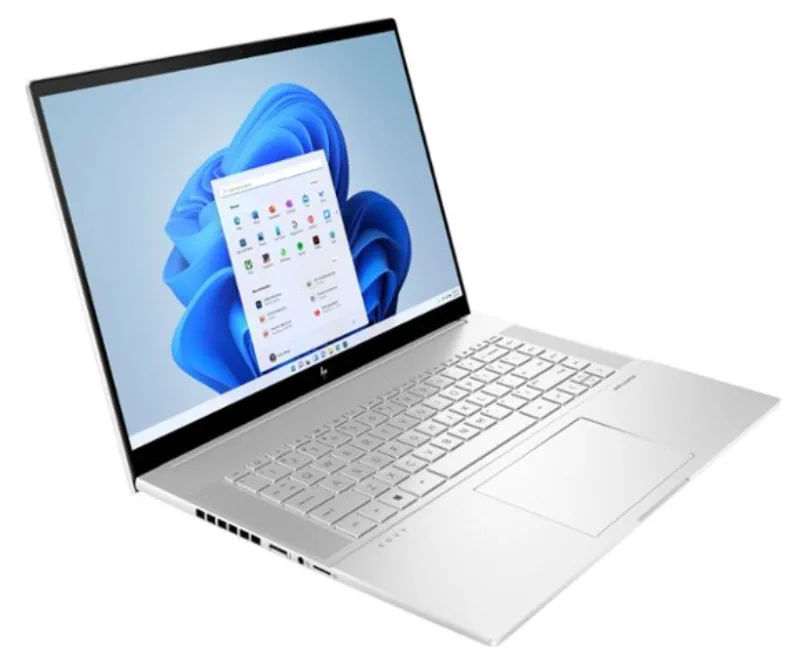
HP ENVY
The HP ENVY series is another popular choice for production. These offer powerful specifications, vibrant displays, and ample storage options.
The HP ENVY series is great for producers who value performance and affordability.
What is a Music Production Computer?
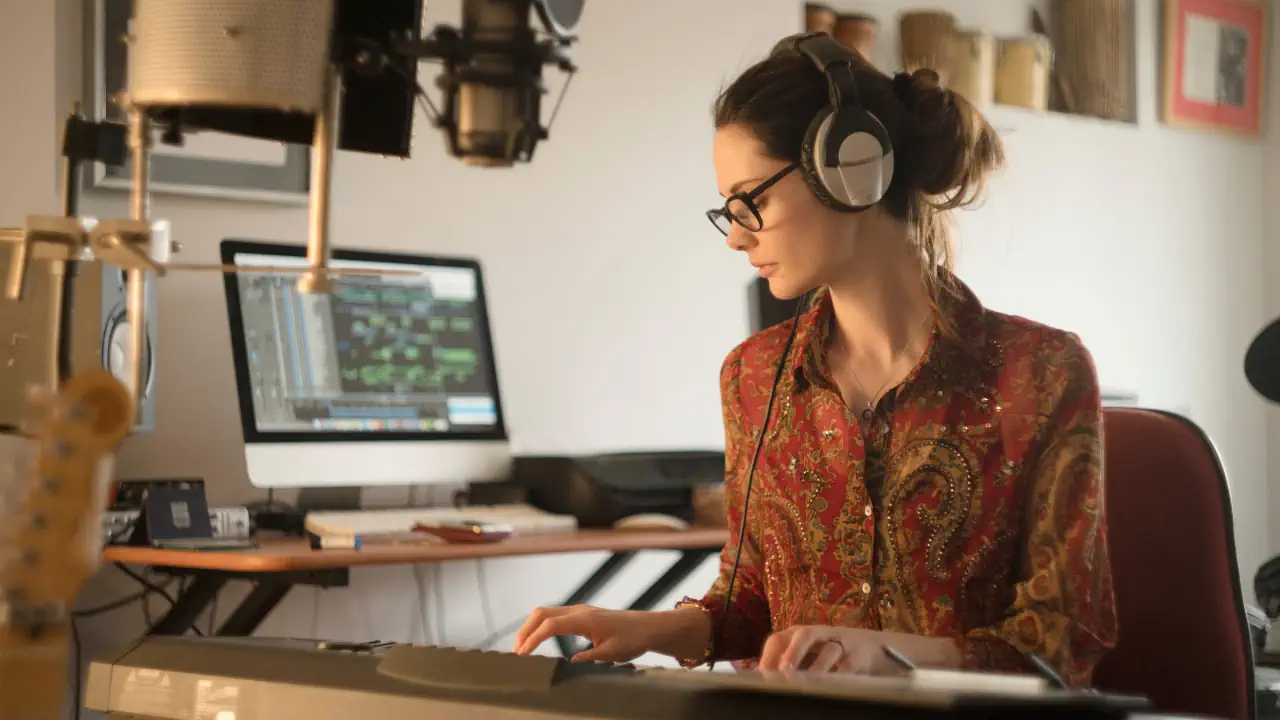
What makes a remarkable music production computer?
Before discussing music production computers, let’s first understand what makes a fabulous computer.
A production computer should be able to handle the demanding tasks of production.
Digital Audio Workstations (DAWs) are computer programs that enable the editing of multiple audio tracks, including the application of audio track effects and sound interfaces.
A good music production computer needs a strong processor, such as an Intel Core i7 or i9, AMD Ryzen, or Apple M2.
Ensure audio files and effects are processed smoothly and tasks are managed efficiently.
For resource-intensive DAWs and effects, it’s best to have at least 16 GB of RAM.
If you work on large projects and use multiple virtual instruments, consider getting 32GB or more for improved performance.
Storage is another important consideration for a music production computer. A fast SSD (Solid State Drive) is crucial for achieving quick boot times and rapid file access.
Enough storage is crucial for keeping sample libraries, audio files, and project files.
The graphics card is less crucial for audio than for video editing or gaming.
Even a decent graphics card can improve the interface and visuals on your device.
Connectivity options are also crucial for a production computer. For faster data transfer rates, look for a computer with many ports, including USB 3.0 or USB-C.
Additionally, having Thunderbolt ports can facilitate connections to high-speed interfaces or external hardware.
Consider the operating system you prefer.
In the music production industry, people use Windows and macOS. Choose the one that suits you best. Make sure it works with your preferred DAW software and plugins.
By considering these factors, you can ensure a seamless and efficient production workflow.
Minimum specifications
A music production computer requires a powerful CPU, ample RAM, and a solid-state drive for storage.
Ensure your computer can handle production software without experiencing lag or performance issues.
It would be best to have a strong CPU for production software with much processing power.
It handles synthesizing sounds, applying effects, and processing many tracks.
A CPU with a high clock speed and several cores can handle these tasks.
Memory is crucial because production software stores a large amount of data in it.
More memory allows the software to process more data, so it doesn’t need to access the hard drive as often.
This will result in smoother performance and quicker load times.
Ample solid-state drive (SSD) storage is essential for two reasons.
SSD is faster than a regular hard drive, reducing lag when loading and saving projects or samples.
Recording music often requires much storage space for samples, instruments, and project files.
With ample SSD storage, you’ll have sufficient space for all your files. This prevents your computer from running out of storage and losing files.
Additionally, a well-designed interface is crucial.
Connect your instruments, mics, and monitors to your computer using an interface. This ensures high-quality sound recording and playback.
Your work will be smoother if you have a computer with these specifications.
It allows you to focus on creating Music without any technical limitations.
Processor speed and performance
The processor is the heart of your music production computer. It determines how your computer can process audio and perform other tasks.
For music creation tasks, it’s recommended that you have a computer with a fast CPU, such as an Intel Core i7 or better.
Ensure your computer can handle multiple tracks and effects without any delays.
The number of processor cores is also essential.
Preferred processors are multi-core. In production, they can handle many tasks. Some tasks include running virtual instruments and processing effects.
A computer with at least quad-core processors will provide enough power for production.
Clock speed is another factor to consider. A higher clock speed enables the processor to execute instructions more quickly, resulting in faster audio processing.
A higher clock speed often translates to improved performance. Factors like the number of cores and architecture also play a role.
Besides the CPU, having enough memory is crucial for smooth production.
It’s recommended to have at least 16 GB of RAM for optimal performance.
More memory is necessary when working with larger projects or using memory-intensive effects.
It’s important to note that a fast processor and enough RAM are necessary. Pair them with a dependable interface and a dedicated hard drive for audio files.
This pairing will optimize the performance and ensure a smooth production workflow.
A fast processor is necessary to ensure the production has sufficient power and stability. The computer requires a powerful processor, ample memory, a robust interface, and a reliable hard drive.
You can work on complex projects without any delays or performance issues.
How much RAM do you need to produce?
Random Access Memory (RAM) is crucial when selecting a computer for music production.
If your computer has more memory, it can handle big audio files and complex tasks.
Having at least 16 GB of RAM for production is a good starting point, although more is always preferable.
Your computer needs enough RAM to handle audio production software and processes.
With more RAM, your computer can store and access more data more efficiently.
This access enhances performance, allowing things to load faster and play more smoothly. It also makes production seamless.
When choosing a computer for production, consider the amount of memory it has.
Invest in a system with at least 16GB of RAM for your audio production.
Storage options for production
The recommended storage is a solid-state drive (SSD).
SSD offers faster read and write speeds than traditional spinning hard drives. The faster speed allows quicker loading times and smoother performance.
It’s best to get a computer with a lot of storage for enough space. Music software requires a significant amount of space.
A backup solution is crucial for safeguarding your music projects and valuable files.
Consider getting an external hard drive (SSD) or using cloud storage to back up your data. This will protect your work in case of hardware failures or accidents.
Choosing a computer monitor for production
The monitor you choose for your production setup is essential. It will affect your workflow and productivity.
For production, use a screen with clear images and accurate colors.
This will allow you to see fine details in your audio tracks.
The importance of ports in a production computer
When choosing a production computer, it’s essential to consider the available ports.
The ports on your computer decide how you connect devices. Some devices include audio interfaces and MIDI controllers.
When selecting a music-making computer, ensure it has ample USB ports. Also, check for specific ports, such as Thunderbolt or FireWire.
It is also essential to consider the speed and compatibility of these ports.
USB 3.0 ports are faster than 2.0 ports. They can handle higher bandwidth audio interfaces and MIDI controllers.
Thunderbolt and FireWire ports transfer data. This makes them ideal for recording and playing audio.
You won’t need extra hubs if you have enough ports for all your devices. More hubs can sometimes introduce latency issues.
It is also worth considering the location of these ports on the computer. Front-facing ports may be more accessible and convenient.
Unique ports, such as HDMI, Ethernet, and SD card slots, are used in music production. These ports connect to audio interfaces, monitors, and storage devices.
They also provide high-speed internet and access to recording media.
The ports you choose depend on your needs and the devices you connect to your computer.
Ensure your computer has the necessary ports and is compatible with your setup.
Desktop or Laptop: Which is better for music
Advantages of using a desktop computer for music production
A desktop computer offers several benefits. Desktop computers are more robust. Desktops typically feature faster processors, more RAM, and higher-end graphics cards.
This means you can handle more complex production tasks without performance issues.
Desktop computers offer more flexibility when upgrading components. Components such as RAM or storage.
Advantages of using a laptop for music production
So, laptops offer portability and convenience.
Laptops are an excellent choice for production. They rock if you travel often or work in different locations. They are compact and lightweight, allowing you to create music on the go.
Some laptops have advanced specifications, similar to those of desktops, which work well for professionals.
Considerations when choosing between a desktop and a laptop
When choosing between a desktop and a laptop for work, several factors should be taken into consideration.
First, please consider your workflow and how you plan to use the computer.
A desktop computer might be your best choice if you work in a studio setup. If power and upgradability are essential to you.
Yet, a laptop is the way to go if you need a computer to take with you on the road or work in different locations.
Choosing Between MAC and PC for Audio
Pros and cons of MAC for music production
Both options have pros and cons when choosing between a MAC and a PC for music production.
People love Macs because they are reliable, easy to use, and work well with other Apple devices.
Professional production studios often use them because they have pro software and plugins.
Yet, Macs are more expensive than PCs. They have a more limited range of hardware options for customization, and Macs require less technical knowledge for troubleshooting.
Pros and cons of a Music Production PC
PCs offer a more comprehensive range of hardware options and are more affordable.
They offer greater flexibility in terms of customization and component upgrades.
PCs are also more compatible with a broader range of beginner and pro software and plugins.
Yet, PCs can be more prone to software conflicts. PCs need more technical knowledge for troubleshooting.
How does an audio interface connect to a computer?
An audio interface connects to a computer through different methods. The methods depend on the specific interface and computer.
The most common way is through a USB connection. This connection allows for a high-speed digital connection.
The high-speed digital connection is between the interface and the computer. Some interfaces also connect via FireWire or PCIe for even faster data transfer.
The interface connects the computer to external audio gear.
It bridges microphones, instruments, and speakers, allowing for high-quality recording, monitoring, and audio playback on the computer.
The interface has preamps, converters, and other components for processing audio signals. It captures and reproduces the signals.
Connecting external audio equipment is simple. It integrates with the computer for professional sound production, and editing is also possible.
Final Thoughts
Key factors to consider when choosing a music production computer
When selecting a music production computer, consider several key factors.
Some key factors are the processor speed and performance, the amount of RAM and storage options, and the display quality and ports’ availability.
Consider what you need and how you work to decide which computer is best for you.
Pick one that can handle complex tasks.
You can use a good computer to make amazing Music your audience will love.
